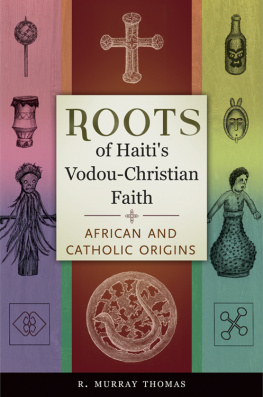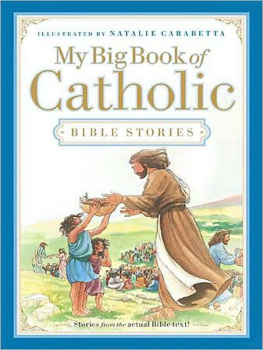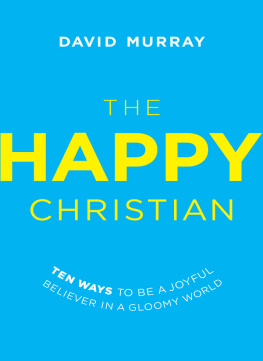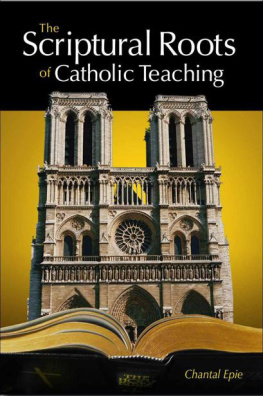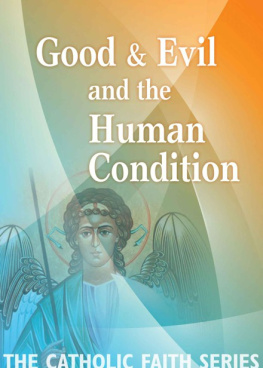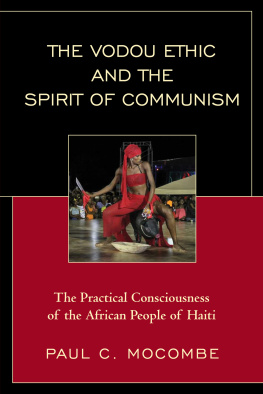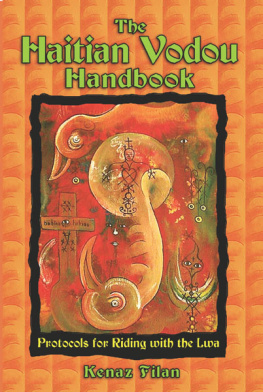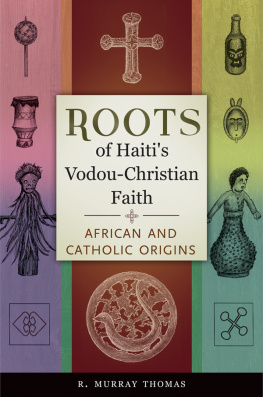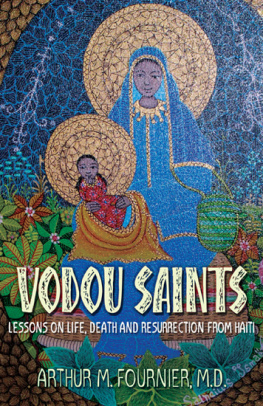R. Murray Thomas - Roots of Haiti’s Vodou-Christian Faith: African and Catholic Origins
Here you can read online R. Murray Thomas - Roots of Haiti’s Vodou-Christian Faith: African and Catholic Origins full text of the book (entire story) in english for free. Download pdf and epub, get meaning, cover and reviews about this ebook. year: 2014, publisher: Praeger, genre: Religion. Description of the work, (preface) as well as reviews are available. Best literature library LitArk.com created for fans of good reading and offers a wide selection of genres:
Romance novel
Science fiction
Adventure
Detective
Science
History
Home and family
Prose
Art
Politics
Computer
Non-fiction
Religion
Business
Children
Humor
Choose a favorite category and find really read worthwhile books. Enjoy immersion in the world of imagination, feel the emotions of the characters or learn something new for yourself, make an fascinating discovery.
- Book:Roots of Haiti’s Vodou-Christian Faith: African and Catholic Origins
- Author:
- Publisher:Praeger
- Genre:
- Year:2014
- Rating:5 / 5
- Favourites:Add to favourites
- Your mark:
- 100
- 1
- 2
- 3
- 4
- 5
Roots of Haiti’s Vodou-Christian Faith: African and Catholic Origins: summary, description and annotation
We offer to read an annotation, description, summary or preface (depends on what the author of the book "Roots of Haiti’s Vodou-Christian Faith: African and Catholic Origins" wrote himself). If you haven't found the necessary information about the book — write in the comments, we will try to find it.
R. Murray Thomas: author's other books
Who wrote Roots of Haiti’s Vodou-Christian Faith: African and Catholic Origins? Find out the surname, the name of the author of the book and a list of all author's works by series.
Roots of Haiti’s Vodou-Christian Faith: African and Catholic Origins — read online for free the complete book (whole text) full work
Below is the text of the book, divided by pages. System saving the place of the last page read, allows you to conveniently read the book "Roots of Haiti’s Vodou-Christian Faith: African and Catholic Origins" online for free, without having to search again every time where you left off. Put a bookmark, and you can go to the page where you finished reading at any time.
Font size:
Interval:
Bookmark:
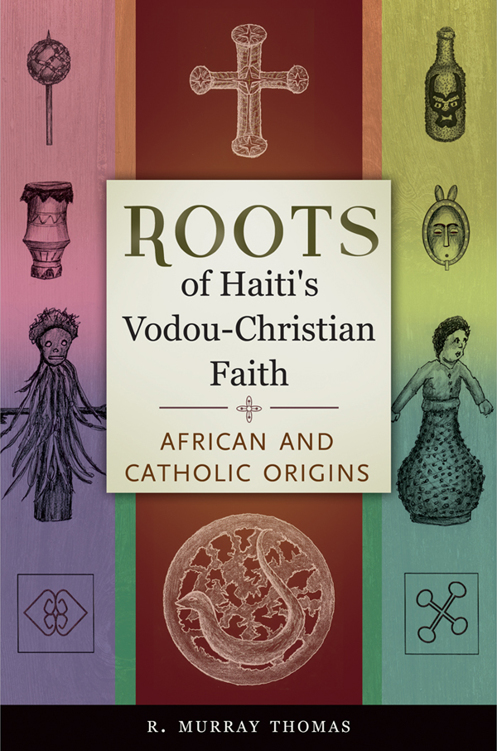
Roots of Haitis Vodou-Christian Faith
Roots of Haitis Vodou-Christian Faith
African and Catholic Origins
R. M URRAY T HOMAS

Copyright 2014 by ABC-CLIO, LLC
All rights reserved. No part of this publication may be reproduced, stored in a retrieval system, or transmitted, in any form or by any means, electronic, mechanical, photocopying, recording, or otherwise, except for the inclusion of brief quotations in a review, without prior permission in writing from the publisher.
Library of Congress Cataloging-in-Publication Data
Thomas, R. Murray (Robert Murray), 1921
Roots of Haitis Vodou-Christian faith : African and Catholic Origins / R. Murray Thomas.
pages cm
Includes index.
Includes bibliographical references.
ISBN 978-1-4408-3203-1 (hardback) ISBN 978-1-4408-3204-8 (ebook)
1. VodouHaiti. 2. Catholic ChurchHaiti. 3. Christianity and other religionsVodou. 4. HaitiReligion. I. Title.
BL2530.H3T492014
299.675097294dc232014000223
ISBN: 978-1-4408-3203-1
EISBN: 978-1-4408-3204-8
181716151412345
This book is also available on the World Wide Web as an eBook.
Visit www.abc-clio.com for details.
Praeger
An Imprint of ABC-CLIO, LLC
ABC-CLIO, LLC
130 Cremona Drive, P.O. Box 1911
Santa Barbara, California 93116-1911
This book is printed on acid-free paper 
Manufactured in the United States of America
To
Professor Claudine Michel,
distinguished scholar in the international field of Haitian studies and assistant vice-chancellor for student affairs at the University of California, Santa Barbara
Contents
An historical review of religions confirms the observation that belief systems are not static but are constantly changing. The rate of change can vary from one faith to another and from one aspect of a faith to another aspect. The change may be extremely slowalmost imperceptible. Or, the change may be rapid, often resulting in a traditional version of the faith splitting into separate denominationswith some denominations more radically deviant than others from the original version.
In this book, I propose that the Haitis combined Vodou/Christian religion has identifiable roots and in recent decades has displayed an accelerating rate of change. To document this proposition, I reach back five centuries to inspect the nature of the two religious traditions that have been credited as the most influential sources of the dominant form of Haitian faith. Those sources have been: (a) traditional African religions brought by the slaves who were imported to Haiti to labor in the island nations fields and mines and (b) the Catholicism promoted by Spanish and French colonial authorities who so affected Haitian culture from the beginning of the 16th century until the present day. Following the description of indigenous African and traditional Catholic religious practices, I describe present-day Haitian Vodou as it relates to those African and Catholic roots. I also suggest what the future may hold for religion in Haiti.
I wish to express my gratitude to Dr. Claudine Michel, a distinguished professor of Black Studies at the University of California, Santa Barbara, who inspired me to write this book and who offered valuable guidance in that endeavor.
Finally, I note that the Catholic portions of several chapters of this book have drawn liberally on portions of my earlier volume titled Manitou and God: North-American Indian Religions and Christian Culture ( R. Murray Thomas), published by Praeger in 2008.
R. Murray Thomas
Two chapters comprise offers a historical sketch depicting political, social, and religious developments in Haiti from the end of the 15th century until 2014.
This book is the result of my first attempt to seek answers to two questions:
What, precisely, is the dominant form of religion in the nation of Haiti?
From what sources has that religion evolved?
I began the search for answers by surveying the published literature, an effort that yielded the following sort of information:
It is sometimes said that Haiti is 90 percent Catholic and 100 percent voodoo; this statement is not, of course, entirely accurate, but nevertheless it does emphasize the fact that the duality in Haitian religious history has never been a confrontation between two separate groups of people. Almost all voodoo adherents would call themselves Catholics, and most Catholics practice voodoo. (Nicholls, 1970)
Haitian Voodoo is believed to have started in Haiti in 1724, in the form of a snake cult that worshipped many spirits. The practices of this cult were intermingled with many Catholic rituals and saints, forming Haitian Voodoo. (Dakwar & Wissink, 2004/2009)
According to Jules Anantua, head of the Haitian Ministry of Cults, Voodoo has always been practiced clandestinely, first by the slaves brought here from Africa, but even after independence [in 1804], because Catholicism became the official religion in Haiti in 1860. In order for voodoo to survive, it had to borrow symbols from the officially recognized religion [Catholicism]. Most voodoo spirits have their counterparts in Christian saints. (Williams, 2003)
Today, most of the Catholic saints have been appropriated as African loa [spirits] in the minds of the Haitian peasants. Thus Legba, the Vodun god of communications, is also the Catholic Saint Peter, the one who holds the keythe one who opens barriers to communication between God and humans. His symbol is a cross, which, for the vodunsi, represents the crossroads; to the Catholic, it is the cross of Jesus. Damballah-Wedo, the serpent deity of Dahomey, is associated with Saint Patrickthe saint who walked on the snakes. Shango, the god of lightning and thunder, is Saint John the Baptist, who, according to tradition, controls the storm clouds . These are only a few of the subtle borrowings or one-dimensional syncretisms that have operated whenever African religions confront other religions. Unlike Catholicisms inflexible dogma, African religion is protean, always adding to its form selective aspects of other religions without endangering its function. (Lippy & Williams, 2010)
There are some anthropologists who believe that some Voodoo rites, and especially the Petwo Voodoo rites, might have their origins in [Native-American] Arawak/Taino religion, but this is speculative. (Corbett, 1988)
In 2012, the World Factbook estimated the religious affiliation of Haitians to be: Roman Catholic 80%, Protestant 16% (Baptist 10%, Pentecostal 4%, Adventist 1%, other 1%, none 1%, other 3%). About half of the population also practices Vodou. (Haiti, 2012)
Although I found such observations enlightening, they failed to tell in detail what I had hoped to learn. I now had further questions to askones that I would be obliged to answer by conducting an extensive investigation of the research literature about traditional African religions and Catholicism, thereby generating from the resulting information a series of principles that might account for the curious nature of Haitis combined Vodou/Christian faith. The chapters of this book explain in detail what I have discovered.
To prepare readers for what to expect in the following pages, I offer guidance in the form of answers to three questions.
What, exactly, is the connection between indigenous African religions and Vodou?
Font size:
Interval:
Bookmark:
Similar books «Roots of Haiti’s Vodou-Christian Faith: African and Catholic Origins»
Look at similar books to Roots of Haiti’s Vodou-Christian Faith: African and Catholic Origins. We have selected literature similar in name and meaning in the hope of providing readers with more options to find new, interesting, not yet read works.
Discussion, reviews of the book Roots of Haiti’s Vodou-Christian Faith: African and Catholic Origins and just readers' own opinions. Leave your comments, write what you think about the work, its meaning or the main characters. Specify what exactly you liked and what you didn't like, and why you think so.

